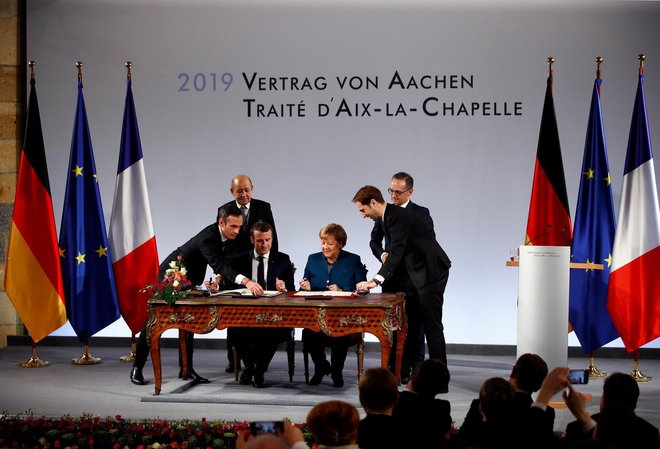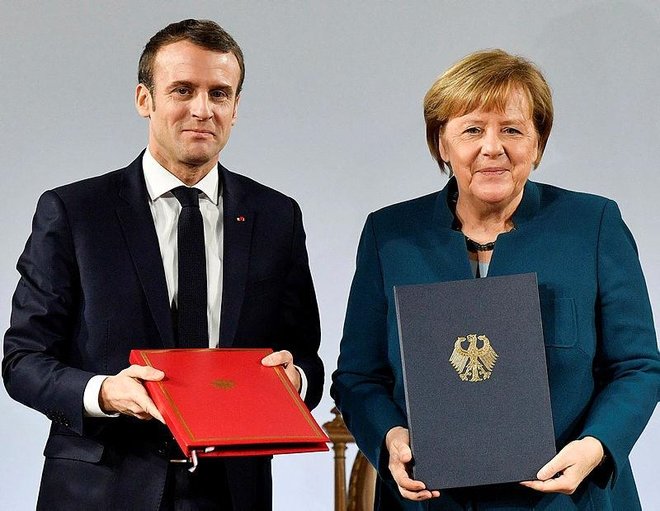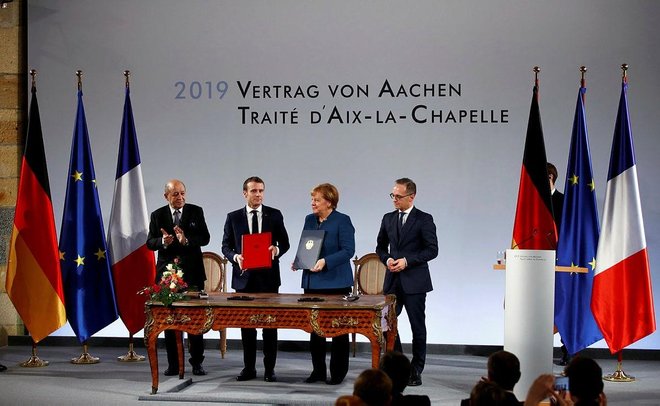German Chancellor Angela Merkel warned Tuesday against rising nationalism in Europe and called for a revival of cross-border cooperation as she and her French counterpart signed a pact renewing their countries' decades-long friendship.

The new accord was inked in the ancient western German city of Aachen exactly 56 years after the 1963 Elysee Treaty, which set the tone for the two countries' close relationship following centuries of conflict that ended with World War II.
"Populism and nationalism are strengthening in all of our countries," Merkel told French, German and European officials gathered in Aachen's town hall.
Citing Britain's departure from the European Union and the growing protectionist tendencies around the world, Merkel noted that international cooperation is going through a rocky period.

"Seventy-four years, a single human lifetime, after the end of World War II, what seems self-evident is being called into question again," she said. "That's why, first of all, there needs to be a new commitment toward our responsibility within the European Union, a responsibility held by Germany and France."
Her words were echoed by French President Emmanuel Macron, who noted the "growing anger" within European societies and pressure from without.
The Treaty of Aachen aims to boost cross-border cooperation along the countries' 450-kilometer (290-mile) frontier, but also improve coordination between the two nations when it comes to tackling international problems such as climate change and terrorism.

Germany and France are often described as the engine of the European Union — to the occasional annoyance of other members, who feel sidelined by the cozy relationship between Paris and Berlin.